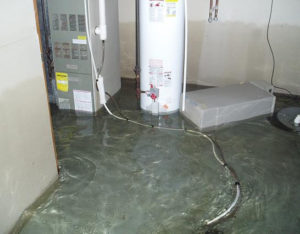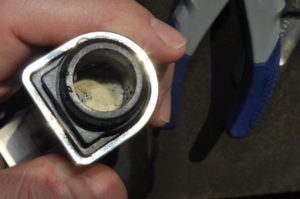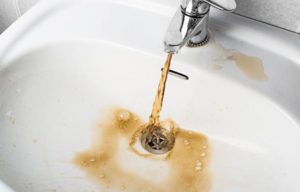There are so many modern-day conveniences that we take advantage of and our hot water heaters are one of them. Half the time we don’t even know where they are stored in our homes, but when you end up waiting 20 minutes for the hot shower that will never be, you find out quickly where that trusty tank lives. Some of us aren’t as lucky as this scenario and instead find ourselves with a sea of water to clean up in our otherwise dry basement, and in need of a new hot water heater.

Hot water heaters are like every other major appliance in our home in that they need regular maintenance in order to successfully live out their 8-12 year life span. However, most of us don’t even spend 5 minutes a year with our hot water tank. It is best to perform an inspection at least once a year on your appliance.
Hot water tanks are one of the leading causes of water damage to a property. Did you know a leak in a small, 30-gallon hot water tank can unleash 2,000 gallons of water, and generate $100,000 in repair costs? Well it absolutely can, which is why it is important to give these hot-headed appliances a little love.

Tankless water heaters will build up calcium and debris on the elements and the filters inside the machine. It’s important to perform a flush with food-grade, white vinegar at least once every 12 to 18 months. Performing this simple maintenance will improve the efficiency and life span of your water heater. It’s also a good time to clean the air filter inside the tankless unit while you’re doing the flushing. If you don’t flush tankless units, it can result in the unit not heating water properly and ultimately needing to be repaired.
Things to consider with your hot water heater:
- Flush tank units twice a year, and tankless units about once a year, to eliminate sediment build up.
- Consider replacing the unit when it has reached its life span of 8 to 12 years.
- Place an inexpensive drip pan below the water heater that drains to the outside of your property to eliminate potential water damage from an overflow.

What to look for during an inspection:
- The burner units have become clogged or rusty.
- There are traces of water, or a puddle forming, under your hot water heater.
- Water doesn’t get as hot as it used to, or the hot water doesn’t last as long.
- There’s a metallic taste in your hot water.
- Visible signs of rust on the unit.
- Your hot water heater makes cracking and popping sounds as it is heating.
- There is rust in the water coming from your faucets.
Routine inspections of your hot water heater will help you to recognize when your unit is about to fail so you can replace or repair it before it leads to damaging your property, or starting your day in a shower of arctic waters.
